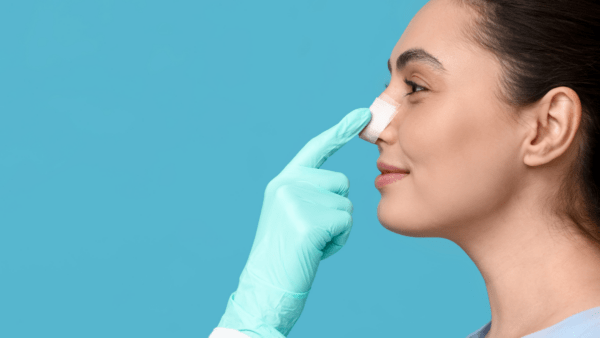
Clearer Skin, Starting Within

Besides the vital biological functions that skin plays (such as regulating water loss, temperature, pain reactivity and immune regulation) it also plays a pivotal role in wellbeing and healthful appearance.
Skin appearance is often judged on surface texture, elasticity, scent, and sebum production, and while there remain to be many factors influencing skin health and appearance, nutrition is suggested to be heavily involved. Many consumers are now looking at changing their diet to combat or prevent skin complaints, seeking advice from professionals or even considering visits to a skin rejuvenation clinic sydney for comprehensive care.
Acne is a particularly common condition, affecting most people at some point in their lives. It causes oily skin and unsightly, sometimes painful spots on the face and parts of the body such as the back and chest. Dermatitis (also known as eczema), is a common collection of skin conditions where the skin becomes inflamed, often leading to crusty scales or blisters that ooze fluid. Contact dermatitis is a localised rash or irritation caused by contact with a specific substance. Atopic dermatitis (AD) on the other hand, is thought to be caused by dysregulation of the immune system. Other common skin complaints include; psoriasis, rosacea, pruritus (itching without attributable cause), alopecia and urticaria (or hives).
Nutrition has long been associated with skin health. Conditions such as acne, atopic dermatitis, ageing, and photo-damage have been suggested to be affected by nutritional patterns and dietary changes. Studies have demonstrated the beneficial effects of essential nutrients on impaired skin integrity and have restored skin appearance and health. For example, skin dryness and sun-damaged skin have been associated with lower intakes of vitamins C, A, E and D as well as carotenoids, lycopene, lutein, polyphenols and linoleic acid (a type of polyunsaturated fat). It is perhaps unsurprising to know that vitamin C plays a role in skin health and appearance, considering its requirements for skin regeneration, wound healing and making collagen (a skin-building block). Therefore diets high in these antioxidants (from fruit and vegetables) may provide hydration and perhaps prevent damage caused by sun exposure, smoking, alcohol, sleep deprivation or stress.
So now that we are consuming our rainbow of fruit and vegetables, can we take it a step further and support the gut as part of our skincare?

Supporting beneficial microbes within our gut may help to support a beneficial diversity within our skin. For example, an imbalance of gut microbes (referred to as dysbiosis) in the gut and skin has been shown in cases of vitiligo and researchers suggest that there is a gut-skin connection that is potentially involved in this condition.
Keeping an effective gut barrier is also important for skin health and our microbiome can play a role in this too. Intestinal permeability occurs when the lining of the digestive tract is damaged, often by pathogens such as yeast overgrowth, low beneficial bacteria levels, diet or lifestyle factors. This allows toxins to pass into the bloodstream, leading to inflammation which can be reflected in our skin. It’s therefore important to eradicate pathogens, increase beneficial bacteria and restore the integrity of the lining of the digestive tract. Live bacteria supplementation may be useful in this regard, as many of the species possess anti-microbial activity, helping to remove pathogens from the gut and rebalance beneficial levels. They also help to support the integrity of tight junctions lining the gastrointestinal tract, preventing epithelial barrier dysfunction (“Leaky gut”).
Systemic and skin inflammation is suggested to be related to gut dysbiosis and these two conditions appear to exacerbate each other. Processed foods have been shown to negatively affect the gut microbiome, and interestingly, consuming processed foods such as processed meat and refined carbohydrates (such as white bread) have been associated with atopic dermatitis and acne respectively. Therefore supporting the gut with whole, largely unprocessed food may also help to maintain efficient gut barrier integrity and prevent toxins from crossing the gut lining.
Beneficial bacteria are known to support gut barrier function, therefore potentially reducing leaky gut and consequent inflammation. Various bacterial strains have shown the ability to reduce intestinal inflammation as well as support gut barrier function, therefore a diet that includes beneficial bacteria could be helpful for clearing our skin up and maintaining a good skin barrier. We can consume beneficial species of microbes in traditionally fermented foods, such as sauerkraut, kimchi, live yoghurt, kombucha and tempeh (to name a few).
Additionally, some choose to supplement with a live bacteria product such as Bio-Kult Everyday (www.bio-kult.com). Go for a product with a reliable count and strain names specified; these are often written as numbers and letters.
Live bacteria supplementation has been shown in studies to have great potential in preventing and treating acne, allergic inflammation, skin hypersensitivity, UV-induced skin damage, wound protection, and as a cosmetic product.
It’s important to remember that we are continuously rubbing off and renewing our skins cells, completely replacing them around every 40 days. So when changing your eating habits and supplements, it may take at least this amount of time before you start to see the benefits reflected in your skin, so stick with it!
Some individuals will spend a fortune on skincare products to improve their skin’s appearance. But before handing over your hard-earned cash, it might be worth considering if you’re drinking enough water. Studies have shown that those with lower prior water consumption who increased their water intake, saw increases in both surface and deep skin hydration, improved elasticity of their skin and improvements in dryness and roughness. So aim to consume around 8 glasses of water daily, you may wish to include fresh fruits or herbs to liven it up, such as mint and lemon or orange and basil.
Research suggests that individuals who are experiencing stress may be more prone to consume a poor-quality diet. Fast food diets tend to be higher in unhealthy fats and sugar, potentially leading to excess sebum production and worsening symptoms of acne, whilst at the same time increasing psychological stress (and therefore continuing the cycle). So try to incorporate a skincare routine that encourages relaxation, perhaps massages or facials. Although more research is always welcome, one review found that stress reduction techniques improved skin conditions, particularly those conditions that caused itching or scratching.
This article was written by the experts over at www.bio-kult.com














































